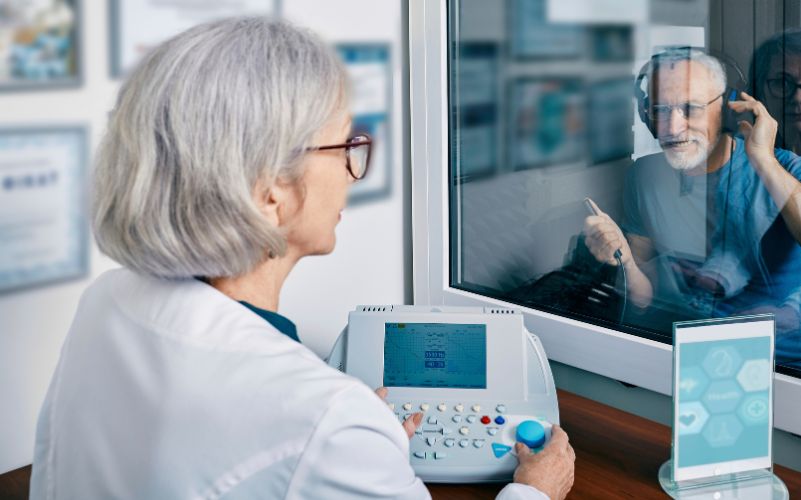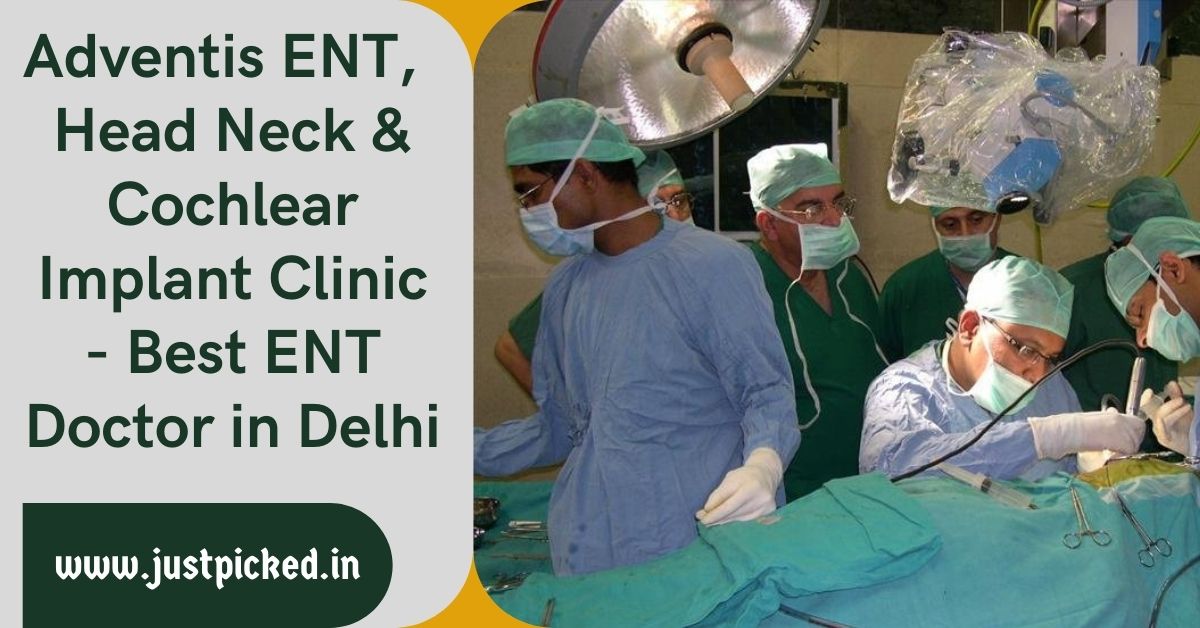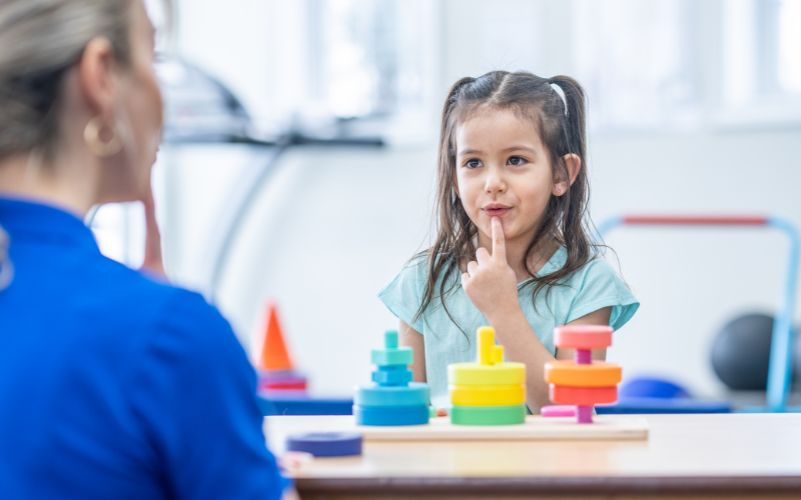Key Takeaways
- Audiologists play a crucial role in addressing hearing loss in COVID-19 patients by providing specialized care and support tailored to individual needs.
- COVID-19 can have a significant impact on hearing abilities, emphasizing the importance of early detection and intervention by audiologists to mitigate long-term consequences.
- Long-COVID patients may experience hearing loss as a symptom, highlighting the necessity for audiologists to offer comprehensive assessments and rehabilitation services.
- Special populations, such as older adults or those with underlying health conditions, may require tailored approaches from audiologists to address their unique hearing challenges during the pandemic.
- The music industry faces challenges related to hearing health amidst COVID-19, underscoring the role of audiologists in promoting hearing conservation strategies and education.
- Understanding the connection between otitis media and hearing loss is essential for audiologists to provide timely treatment and prevent potential complications in patients.
- Audiologists can help in addressing communication barriers faced by individuals with hearing loss, offering solutions like assistive devices, communication strategies, and counseling.
- Knowledge of the impact of COVID-19 on the auditory system equips audiologists to deliver specialized care and rehabilitation services tailored to patients recovering from the virus.
- By implementing personalized strategies, audiologists can support COVID-19 patients in managing hearing-related issues effectively and improving their overall quality of life.
During these unprecedented times, there has been a surge in the number of COVID-19 patients who reported experiencing hearing loss problems. Read how an audiologist can help you screen and manage hearing loss post-COVID.
18 June, Delhi, Friday: Like anyone can get a heart stroke after a lack of oxygen supply in the blood, likewise hearing loss can occur after a COVID-19 infection. This type of hearing loss is also known as sensorineural hearing loss.
While the COVID-19 primary is associated with respiratory problems, there is a new study that reports that the disease can affect other body organs among which is auditory dysfunction which can occur when in contact with various viral diseases.
Covid is a type of virus that leads to infection in the ear. Hearing loss can occur due to several causes. Only an audiologist can diagnose to evaluate the exact cause of the problem. Timely identification of hearing loss can help to get treatment and reduce the potential of improving hearing. The virus may directly damage the inner ear structure which includes hearing cells.
Ever wondered how audiologists from audiological centers play a crucial role in addressing hearing loss among individuals battling the effects of COVID-19? As the pandemic continues to impact people worldwide, many are facing challenges related to their hearing health. Audiologists step in not only to diagnose and treat hearing impairment but also to provide much-needed support and guidance during these uncertain times.
By offering specialized audiological care tailored to each patient’s needs, audiologists from audiological centers contribute significantly to improving the quality of life for those struggling with both COVID-19 and its aftermath. Stay tuned as we delve into the essential ways audiology and audiological services can assist individuals experiencing hearing difficulties amidst the ongoing pandemic.
Audiologists Responding to COVID-19
Managing Hearing Loss
Regular check-ups with audiologists are crucial for addressing hearing loss and cerumen in COVID patients. These professionals create customized treatment plans tailored to individual needs, which may include hearing aids or assistive devices. Lifestyle adjustments like reducing background noise can significantly improve hearing.
Communication strategies, audiological services, and care services play a vital role in overcoming challenges faced by individuals with hearing loss during the pandemic. The use of face masks poses difficulties for individuals with hearing impairment as they hinder lip reading, but alternatives like clear masks or visual cues can help maintain effective communication. Social interactions may be impacted due to hearing impairment, emphasizing the need for audiological services.
Digital Tools
Audiologists have adapted by utilizing digital tools such as virtual platforms for consultations and online hearing tests. Remote programming services for hearing aids ensure that patients receive necessary adjustments without physical appointments, promoting convenience and safety. These digital solutions enhance access to audiology services despite restrictions imposed by the pandemic.
In response to COVID-19, audiology practices have undergone significant changes focusing on telehealth services and safety protocols. Telehealth offers remote access to audiologists from the comfort of home through video conferencing evaluations and prescription services online. Safety measures within clinics include enhanced cleaning routines, social distancing guidelines enforcement, mandatory personal protective equipment usage, and infection control protocols.
Impact of COVID-19 on Hearing Abilities
Sensorineural Loss
Sensorineural hearing loss in COVID-19 patients can be challenging. It involves nerve-related issues affecting hearing. Treatment options include hearing aids or cochlear implants, depending on the severity. Audiologists also provide rehabilitation techniques to enhance auditory processing and improve speech understanding.
For individuals experiencing balance problems due to vestibular issues post-COVID-19, audiologists offer vestibular rehabilitation therapy. This specialized treatment helps in regaining balance control and reducing dizziness episodes related to the inner ear. By addressing these challenges, patients can regain their mobility and perform daily activities more comfortably.
Cognitive Impairment
Tinnitus is a common symptom reported by COVID-19 survivors with hearing loss. Audiologists assist participants in managing tinnitus symptoms through sound therapy or counseling sessions. Patients are taught coping mechanisms to deal with the ringing or buzzing sounds they perceive.
When cognitive decline is associated with hearing impairment post-SARS-CoV-2 infection, audiologists conduct cognitive assessments alongside traditional hearing tests to evaluate mental functions accurately. They recommend strategies like brain training exercises and social engagement to maintain cognitive function as part of the holistic care approach for patients recovering from COVID-19-induced complications.
Hearing Loss in Long-COVID Patients
Pathophysiology Understanding
Studying the biological processes of hearing loss reveals crucial insights into its development. By identifying underlying causes, audiologists can tailor treatments effectively. Research advancements in the pathophysiology of hearing loss have led to improved diagnostic techniques and personalized interventions. For instance, understanding how COVID-19 affects the auditory system helps in developing targeted therapies for long-COVID patients experiencing hearing issues.
Supporting Special Populations
They play a crucial role in supporting special populations, including older adults with hearing aids and infants and families.
Older Adults with Hearing Aids
For the general population of elderly individuals using hearing aids, audiologists provide tailored care by making adjustments to the settings of these devices. This ensures that seniors receive optimal assistance for their auditory needs. Support systems are put in place to assist older adults in effectively managing their hearing devices.
- Tailored care for elderly patients with hearing aids
- Adjustments in hearing aid settings for seniors
- Support systems for managing hearing devices
Infants and Families
In cases involving infants experiencing auditory issues, early intervention is vital. Audiologists emphasize the benefits of timely detection and intervention in addressing potential hearing loss concerns among this demographic group. Screening programs are implemented to identify any auditory challenges promptly, highlighting the importance of immediate treatment to prevent further deterioration.
- Benefits of early detection and intervention
- Screening programs for timely identification
- Importance of prompt treatment
Moreover, family involvement plays a significant role.
Family Support Strategies
Audiologists focus on educating families about effective communication techniques when interacting with loved ones who have difficulty hearing. By involving family members in the patient’s audiological care journey, these professionals create a strong support network that helps families cope better with their loved ones’ auditory issues.
- Involving family members in patient’s audiological care
- Educating families on communication techniques
- Support networks for coping with loved ones’ challenges
COVID-19 and the Music Industry
Influence on Musicians
Musicians are at risk of hearing loss due to loud music exposure. This can significantly impact their careers, affecting their ability to perform and enjoy music. Audiologists play a crucial role in assessing musicians’ hearing health and providing tailored support to preserve their hearing.
To protect musicians’ hearing, audiologists recommend using custom earplugs designed for noise environments. These earplugs offer benefits such as reducing harmful sound levels while maintaining the quality of music. Proper use of earmuffs for noise reduction is essential when exposed to loud sounds during performances or rehearsals.
Audiological support tailored to musicians includes education on how to protect their ears from loud sounds effectively. By raising awareness about the risks of noise-induced hearing loss and providing guidance on preventive measures, audiologists empower musicians to prioritize their hearing health without compromising their passion for music.
Hearing Protection Measures
In the context of COVID-19, patients may experience auditory issues such as sensorineural hearing loss as a result of the virus or its treatments. Audiologists can help these individuals by conducting thorough assessments to determine the extent of any hearing loss and develop personalized treatment plans accordingly.
For COVID patients with hearing loss, audiologists may recommend assistive listening devices or communication strategies to improve auditory function. These interventions aim to enhance the patient’s ability to communicate effectively despite potential challenges posed by compromised hearing.
Moreover, audiologists can provide counseling and emotional support to COVID patients experiencing changes in their auditory perception. By addressing concerns related to hearing loss, audiologists contribute not only to improving patients’ quality of life but also supporting them through difficult times associated with the pandemic.
Otitis Media and Hearing Loss Connection
Sudden Loss Insights
Hearing loss in COVID patients can be sudden, necessitating urgent treatment. The unforeseen nature of sudden hearing loss can be alarming. Prompt intervention is crucial to address the rapid decline in auditory function.
In cases of sudden auditory decline, immediate medical attention is imperative. Treatment urgency underscores the need for swift action to mitigate further hearing damage. Following the abrupt onset of sensorineural hearing loss, rehabilitation becomes pivotal for recovery.
Treatment Approaches
Audiologists employ diverse interventions to address different types of hearing loss effectively. Assessing cochlear implant suitability for sensorineural hearing loss plays a significant role in determining suitable treatment paths. Tailored treatment plans are crafted based on individual needs and specific circumstances.
Addressing Communication Barriers
Face Masks and Hearing Loss
Individuals with hearing loss face challenges understanding speech when others wear masks. Tips like speaking clearly, using gestures, and writing down information can enhance communication while wearing masks. Mask-wearing can significantly impact those with existing auditory issues by muffling sound and making lip-reading impossible.
Visual aids play a crucial role in aiding communication for individuals with hearing loss. Using visual cues such as facial expressions or body language can supplement auditory information effectively. In audiological settings, sign language is a valuable tool that audiologists utilize to bridge the communication gap with patients who have hearing impairments.
Visual Aids Use
The benefits of incorporating visual aids go beyond just enhancing communication; they also help create an inclusive environment for individuals with hearing loss. By utilizing sign language in audiological settings, audiologists can ensure effective communication and better patient outcomes. Adding visual aids to supplement auditory information not only improves comprehension but also fosters a more supportive and accessible environment for patients.
Auditory System and COVID-19
Research Findings
Recent studies have highlighted the impact of COVID-19 on auditory health. Innovative research projects are delving into the connection between COVID-19 and hearing loss. For instance, a study published in The Lancet reported that around 7.6% of individuals hospitalized with COVID-19 experienced hearing loss.
Key findings from these studies are shaping how audiologists approach auditory issues related to the pandemic. They are now more attuned to recognizing potential hearing problems in patients who have had or currently have COVID-19. This heightened awareness allows for early intervention and management of any auditory complications arising from the virus.
Clinical Observations
Audiologists have made significant observations regarding patient experiences during the pandemic. Due to restrictions, many individuals delayed seeking audiological care, leading to a backlog of cases once clinics reopened fully. Audiological practices also witnessed trends like increased telehealth appointments for initial consultations and follow-ups.
These clinical insights gained during the pandemic are crucial in guiding treatment decisions for patients experiencing respiratory syndrome after battling COVID-19. Audiologists play a vital role in assessing and addressing any auditory issues resulting from both the virus itself and its treatments.
Strategies for Audiologists
Innovative Practices
Audiologists have embraced new approaches during the pandemic, utilizing digital innovations to enhance services. For instance, teleaudiology has become more prevalent, allowing remote consultations and evaluations. These advancements have made audiological care more accessible and convenient for patients. Audiologists have developed creative solutions to address challenges faced by individuals with hearing loss during COVID-19.
Innovative practices also include leveraging technology for virtual hearing aid fittings and adjustments. By implementing these strategies, audiologists can ensure that patients receive necessary care while adhering to safety guidelines. Moreover, some professionals have introduced home hearing test kits that enable individuals to assess their auditory health remotely.
Patient Education
Health Literacy Improvement
Educational initiatives play a crucial role in promoting awareness about auditory health among the general population. Through various literacy programs focused on preventive measures against hearing loss, audiologists aim to empower individuals to take proactive steps in preserving their hearing abilities. For example, campaigns advocating for regular ear check-ups and noise-induced hearing loss prevention strategies are essential components of health literacy improvement efforts.
Another key aspect of patient education is enhancing understanding of diagnostic reports such as audiograms. Audiologists strive to explain these results in layman’s terms so that patients can comprehend their auditory status better. By promoting health literacy related to audiological assessments and outcomes, individuals are better equipped to make informed decisions regarding their hearing healthcare.
Coping Mechanisms
To assist patients in coping with changes in auditory abilities caused by COVID-19 or other factors, audiologists provide psychological strategies tailored to individual needs. Support groups offer emotional assistance and a sense of community for those experiencing challenges related to hearing loss or impairment.
Furthermore, self-care techniques recommended by audiologists focus on managing day-to-day activities effectively despite potential limitations due to diminished auditory capabilities.
Summary
You’ve learned how audiologists are stepping up during the pandemic, addressing the impact of COVID-19 on hearing loss and supporting special populations like long-COVID patients and musicians. The connection between otitis media and hearing loss has been explored, alongside strategies to overcome communication barriers. Understanding the auditory system’s involvement in COVID-19 sheds light on how audiologists can make a difference.
Take charge of your hearing health. Stay informed, seek help if needed, and spread awareness about the vital role audiologists play in managing hearing issues during these challenging times.
Frequently Asked Questions
About Sphear Speech and Hearing Clinic
Sphear Speech and Hearing Clinic was founded in 2008 by Neevita Narayan. The clinic specializes in treating all conditions related to hearing and speech in both children and adults. The clinic provides complete screening, diagnosis, assessment, treatment, and rehabilitation services for patients dealing with hearing loss and speech problems. Hearing and speech are important senses required to live a quality life. The SpHear team understands the need to address a patient’s unique listening needs thus, providing personalized hearing, speech, and communication services, in addition to the latest hearing device technology. It is recognized as the best clinic for hearing loss in Delhi.
Contact Details:
Address: E 152, Basement, Sector-20, Noida – 201 301
Tel: +91-120-422 5246, +91-120-422 5247
Website: www.sphearclinic.com
Email: [email protected]




